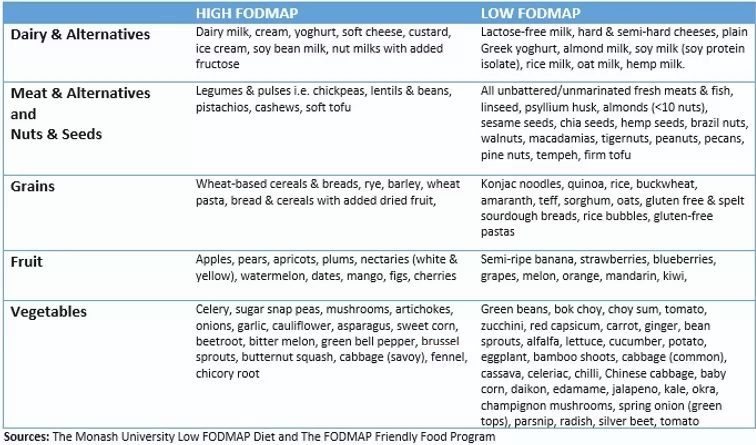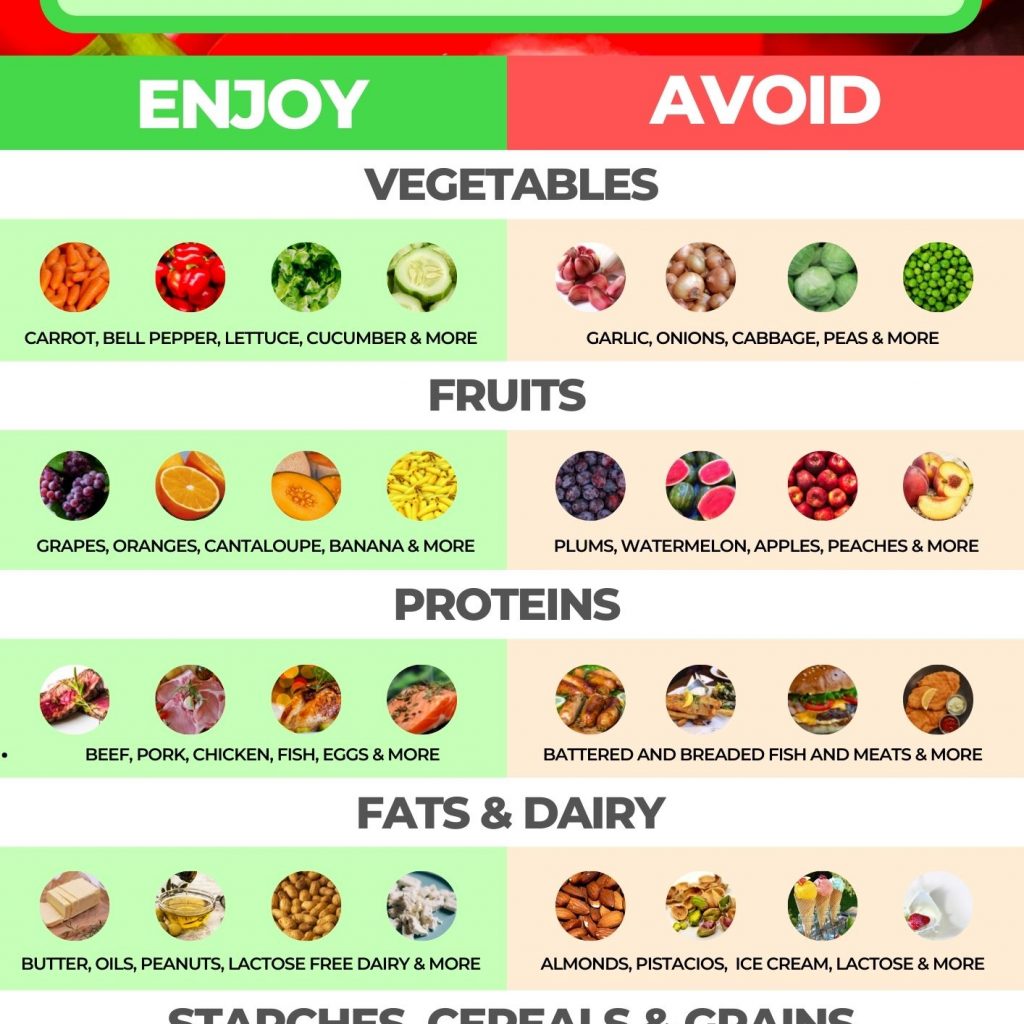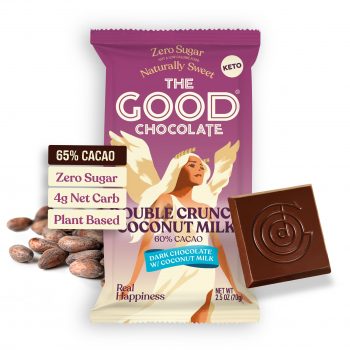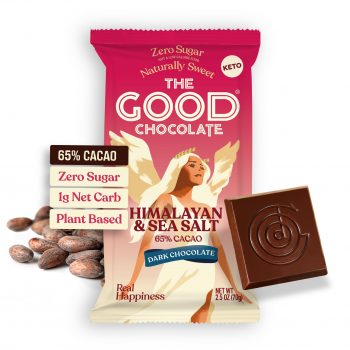
We’ve asked Shaynie Ashkenazi from FODSHOP, Australia’s leading distributor of FODMAP-friendly foods, to give us a FODMAP 101 primer. As a FODMAP and IBS expert (more on IBS below), Shaynie is just the right person to shed light on this relatively new diet solution to some common GI problems. Thank you, Shaynie, for guest writing our blog and sharing your knowledge about FODMAPs with our community!
The FODMAP diet has been around since 2001 and was based on the idea that fermentable carbohydrates are difficult to digest, and cause bowel problems such as bloating, abdominal pain, excess gas and other bowel habits.
It sounds a bit complicated but it’s easy to understand in fact. Have you ever felt uncomfortable bloating after eating onion, garlic and wheat? These foods are fermentable carbohydrates, which means:
The word FODMAP is a complicated acronym used to describe the full range of foods that are high in these fermentable carbohydrates. FODMAP stands for Fermentable Oligosaccharides, Disaccharides, Monosaccharides and Polyols, which include the names of poorly digested carbohydrates, including fructose, lactose, fructans, galacto-oligosaccharides (GOS) and most sugar alcohols (importantly for The Good Chocolate, not Erythritol).
But don’t worry too much about the meaning of the acronym, FODMAP! It’s easier to remember at the actual foods that contain them, including vegetables and fruit, cereals and grains, legumes, pulses, nuts, dairy and packaged food products. See the table
below for more examples.

Here’s another helpful visual representation of high and low FODMAP foods.

Irritable Bowel Syndrome (IBS) is the name, in the medical literature, for the bloating, abdominal pain and alternating bowel habits described above.
Perhaps surprisingly, IBS is a relatively common condition affecting 1 in 5 (20%) Americans and up to 15% of the Western world. We don’t know the cause for IBS and it often goes undiagnosed. People who suffer from IBS may have a genetic or environmental predisposition to experience more difficulty digesting these fermentable carbohydrates and/or have more sensitivity to fermentation and changes in the GI (gastroenterological) tract.
If you struggle with ongoing gut disturbance that is affecting your quality of life, you may have Irritable Bowel Syndrome (IBS). Because IBS may often be confused with a sensitive stomach, a formal medical diagnosis must be made by your family or GI doctor, normally using the “Rome IV” criteria for functional GI disorders below:
For the purpose of treatment, IBS can be divided into three types, based on your symptoms:
A low FODMAP diet is the recommended dietary intervention for IBS. If you receive an IBS diagnosis, it is advised to consult with a Dietitian specially trained in FODMAP and IBS, to ensure the most evidence-based nutrition care is provided. The treatment varies from patient to patient. For example, some people are more sensitive to fruit, and others to vegetables. The full FODMAP diet typically takes 8 weeks in 3 phases.
Phase 1 – “Elimination Phase” – The diet starts with a 6-8 week “elimination phase” of all fermentable carbohydrate foods to help you pinpoint your IBS symptom triggers (approximately 6 weeks).
Phase 2 – “Reintroduction Phase” – Slowly you add high FODMAP foods back to your diet, one by one, to find out which ones you can eat and digest comfortably and which you can’t (approximately 2 weeks).
Phase 3 – “Integration Phase / Lifelong” – You establish your low FODMAP diet by including high FODMAP foods you discovered you can tolerate, while minimizing those high in FODMAPS that you can’t.
There are variations on the diet in terms of duration of the different phases.
The good news is the low FODMAP diet has proven to be the most effective way to relieve symptoms of IBS, with up to 86% of people following the diet experiencing symptom relief.
You can find a registered Dietician in the US here to learn more about treating IBS with a low FODMAP diet – also on our home turf, Australia.
The Good Chocolate uses low FODMAP ingredients to provide the unique delicious flavors and sweetness of vegan chocolate. The chocolate does not contain any sugar or high FODMAP sweeteners, it is naturally sweetened with Erythritol, a sweetener considered to be low FODMAP according to Monash University. The Good Chocolate’s dark chocolate line is purely plant-based, bean-to-bar quality and it is also suitable for patients with diabetes.
My team at FodShop is proud to be partnered with The Good Chocolate as the exclusive Australian supplier of low FODMAP certified chocolate, available for retail distribution and in our online store.
Look for the FODMAP Friendly certification logo on The Good Chocolate products to make a confident choice while following a low FODMAP diet!

BSc. MHumNutr. Associate Nutritionist
Founder, Fodshop (Australia)
IG: @fodshopper
Website: www.fodshopper.com.au
Shaynie is the founder of FODSHOP, Australia’s leading distributor and online store of FODMAP friendly. Shaynie has degrees in nutrition and extensive clinical nutrition training. After seeing how many patients were experiencing IBS-type symptoms, she became interested in the low FODMAP diet, especially as it has become increasingly recognized by dietitians as a nutrition therapy for IBS and other functional gut disorders. Finally, Shaynie went full-on “entrepeneur” and started FODSHOP after seeing how hard it was for clients & patients to find low FODMAP food products suitable for their low FODMAP diet. “I decided it was time to help people to access them and then FodShop was born!”
AUTHOR

SHARE FOR GOOD KARMA
MORE POSTS
Good things happen to those who read ; )
SPECIAL 15% OFF for BETTER BE GOOD blog launch!
Use code: betterbegood15 at checkout


